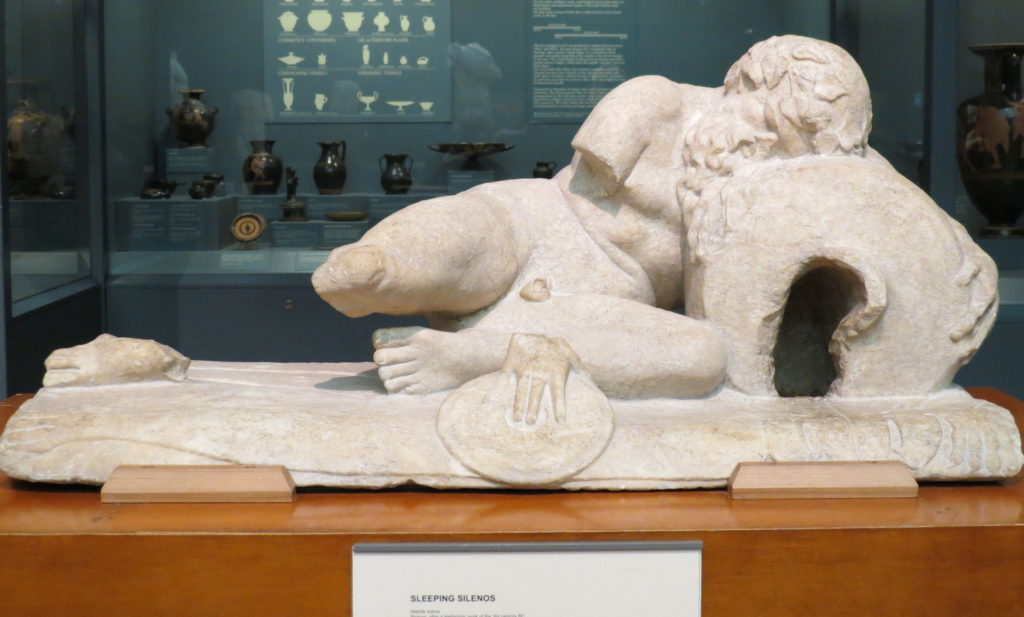RS22: Freedom and Slavery

“If I speak in the tongues of mortals and of angels, but do not have love, I am a noisy gong or a clanging cymbal. And if I have prophetic powers, and understand all mysteries and all knowledge, and if I have certainty, so as to remove mountains, but do not have love, I am nothing. If I give away all my possessions, and if I hand over my body so that I many boast, but do not have love, I gain nothing. Love is patient. Love is kind. Love is not envious or boastful or arrogant or rude. It does not insist on its own ways. It is not irritable or resentful. It does not rejoice in wrongdoing, but rejoices in the truth. It bears all things, believes all things, hopes all things, endures all things. Love never ends” (1 Cor 13: 1 – 8a). This short passage, long attributed to Paul, is so unlike Paul’s teachings and is so resonant with Jesus’ teachings (especially as seen in the Gospel of Thomas), it’s amazing Paul still gets the credit. Shown here are the Pyramids at Giza, photo credit Historylink101.com (Egyptian Picture Gallery).
A: Last time you said Paul’s religious masters feared contamination by the forces of chaos. You then defined the forces of chaos as the forces of Love and All Things Feminine. My first thought was to ask about the reaction from Christians who insist that Paul speaks eloquently about Love. Then I remembered that you yourself wrote the famous ode to love in First Corinthians 13. I also remembered the academic papers I’d read about the meaning of the word “love” (aheb in Hebrew) in Second Temple Judaism. At that time “loving God” meant “obeying God” rather than “liking God” or “being in relationship with God.” Love for God was a duty, a contractual obligation, a way for human beings to hold up their end of the bargain with God.
Why did Paul talk so much about love (agape in the Greek) if he didn’t believe in love?
J: Paul was not a man who was capable of love. What he meant by love was something much closer to the mindset you and I have defined as humility — turning yourself into an empty vessel — an obedient vessel — so you can properly receive Paul’s authority.
A: He doesn’t use the word “humility” in his letters.
J: No. He uses the words “weakness” and “foolishness.” But it’s still humility.
A: The meaning is the same.
J: Paul didn’t believe at all in the concept of love as I understood love. He believed in obedience. In orderly, obedient communities. In pyramids of mystical power where the people at the bottom of the pyramid “knew their place” and obeyed those who were higher up in rank and authority and supported them in their “great mission.” But he doesn’t use the word “pyramid.” He uses the metaphor of the body — the one body in Christ. Christ is the head. All the members of the community are part of this one body, which makes sense from a practical viewpoint, because a body can move more swiftly if it has two healthy feet. But make no mistake — the feet are still at the bottom of this pyramid of power. So slaves are loved in Paul’s community because they help bring order and stability to the community. But they’re still slaves.
A: Christians today read Paul’s speech about the one body (1 Cor 12: 12-31) as a rejection of hierarchical values in Hellenistic culture. But you’re saying it’s not a rejection.
J: It’s a different understanding of hierarchy. For Paul, it’s a superior understanding of hierarchy. It’s an attempt to reveal the real truth about hierarchy, the real mystical underpinnings of hierarchy that exist within all the worlds of Heaven. It’s Paul’s attempt to bring “the one true” hierarchy into the corrupt world. Again, alchemy. An attempt to bring order and harmony into the corrupt physical world by controlling the powers of chaos. An attempt to corral the behaviour of everybody so they’ll fit properly within the pyramid of power that Paul and his religious masters are trying to build.
A: When you say they’ll fit properly, how do you mean that? Do you mean that figuratively?
J: No. I mean that literally. Don’t forget — “The One True Religion” Paul was commissioned to spread was about 3,000 years old by the time Paul came on the scene. This group had already spent 3,000 years researching and experimenting with different ways to acquire power. Their early attempts were focussed on external tools — projects such as the Pyramids of Giza and subsequent wonders of the ancient world. Eventually, though, they noticed they were having problems with other people’s brains. People had an annoying habit of trying to find freedom for themselves and their families. Then they wouldn’t behave!
The Seekers of the Rock decided that all those busy human minds that were always getting in the way of the group’s goals were nothing more than fractured little bits of the universal Order and Perfection that Spirit had already created in pure form for the higher levels of Heaven. Order and Perfection were envisaged as a pyramid of perfect, exquisite, divine geometry. Each of the four sides at the base of the pyramid represented one of the immutable Divine Laws (as this group understood them). One side — the north side — represented vengeance — in other words, the Divine Right to punish lawbreakers. The south side represented knowledge — the Divine Right to control all knowledge. The west side represented “mass” — great weight, strength, force, inertia — or the Divine Right to build great armies to seize what was rightfully its own. The east side represented sacrifice — the Divine Right to demand sacrifice for purposes that cannot be understood by mortal minds.
The Seekers believed that if communities of believers could be gathered together in accordance with these four main principles, they could literally create a metaphysical pyramid that would be pleasing to Spirit. But, as with a physical pyramid built of carefully cut stones, a mystical pyramid can only be strong and whole and worthy of Spirit’s approval if each “stone” is properly placed in relation to neighbouring stones. The pyramid is built of many smaller stones. So all the stones are necessary if the pyramid is to achieve its purpose. If you remove some of the stones at the bottom, the whole construct might topple.
A: So, for Paul, slaves are like the stones at the bottom.
J (nodding): When the slaves know their proper place, and stay where they’ve been placed at the bottom of the pyramid, the Divine Rights of Vengeance, Knowledge, Strength, and Sacrifice will remain in balance, and Order is achievable. But if the slaves dare step outside the bounds of the pyramid and into the frightening world of chaos that lies beyond, Spirit will have no choice but to exercise its Rights. That’s when you get divine actions like the Great Flood. It’s a simple matter of cause and effect.
A: For every action, there is an equal and opposite reaction.
J: As I said, this bunch saw themselves as scientists in pursuit of order and harmony. Their relentless attacks on free will were highly logical, if completely inhumane. From their twisted perspective, they were “saving” the slaves from the dire consequences of their foolish desire for freedom. They were acting in the best interests of the group as a whole. “We’re doing this for your own good. This hurts us more than it hurts you. One day you’ll thank us for this.”
A: Something tells me Paul’s rhetoric on “freedom” is not what it appears to be.


























